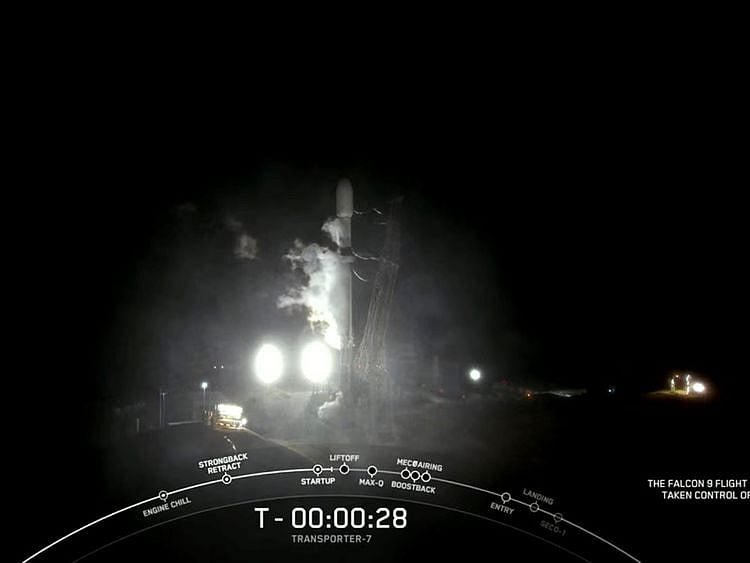SpaceX postpones launch of rocket with Dubai’s DEWA SAT-2 again due to bad weather
Launch by SpaceX Falcon 9 rocket moved to 10.47am on April 15

Dubai: Bad weather delayed the lift-off of Dubai’s Earth observation nanosatellite DEWA-SAT 2 on a SpaceX rocket, for the third time, on Friday.
The launch of Dubai Electricity and Water Authority (DEWA)’s 6U nanosatellite by a SpaceX Falcon 9 rocket from Vandenberg Space Force Base in California, USA was put on hold right ahead of final countdown due to unfavourable weather conditions.
The next launch attempt would be at 10.47am here on April 15, according to SpaceX.
Hold…hold…hold
The Falcon 9 was in startup, when internal computers took over the countdown after the T-minus one-minute mark, when the launch director said “hold, hold, hold,” just 30 seconds before the launch.
“Due to unfavourable weather conditions, now targeting tomorrow, April 14 at 11:47 p.m. PT for launch of Transporter-7 from SLC-4E in California,” SpaceX tweeted.
DEWA’s 6U nanosatellite was among 51 spacecraft that were to be launched into orbit by theTransporter-7 rideshare mission.
Nanosatellite
DEWA SAT-2 nanosatellite was designed and developed at DEWA’s Research and Development Centre at the Mohammed bin Rashid Al Maktoum Solar Park, in cooperation with NanoAvionics in Lithuania. DEWA-SAT2 features a high-resolution camera (4.7 meters) that will be used for Earth observation missions.
The high-resolution camera provides continuous line-scan imaging in seven spectral bands from approximately 500km orbit.
How it will help
DEWA said the new satellite is also equipped with Infrared equipment to measure greenhouse gases.
It will improve the efficiency of DEWA’s generation, transmission, and distribution divisions by monitoring solar power plants and enhancing the accuracy of generation predictions.
This will be achieved through forecasting of weather patterns, seawater temperature and salinity, as well as monitoring of electricity transmission lines.
Additionally, the satellite will aid in detecting water leaks and identifying any changes in the infrastructure, further optimising DEWA’s operations.
Boosting solar park's efficiency
DEWA is the first utility in the world to launch nanosatellites to improve its planning, operation, and maintenance activities.
Using satellite network communication, IoT and Artificial Intelligence contributes to improving the efficiency of photovoltaic solar panels at the Mohammed bin Rashid Al Maktoum Solar Park, the largest single-site solar park in the world, using the Independent Power Producer (IPP) model.
Sign up for the Daily Briefing
Get the latest news and updates straight to your inbox
Network Links
GN StoreDownload our app
© Al Nisr Publishing LLC 2025. All rights reserved.